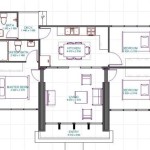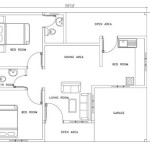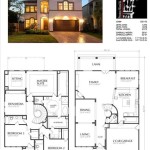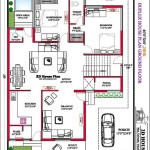Plans For Small Houseboats: Essential Aspects to Consider
Building a small houseboat can be an exciting project, but it requires careful planning and consideration. Here are some essential aspects to keep in mind when designing and constructing a compact houseboat:
1. Determine Your Needs and Lifestyle: Consider your intended use for the houseboat. Will it be primarily for weekend getaways or long-term living? How many people will it accommodate? Your answers will guide the size, layout, and amenities required.
2. Choose a Suitable Hull: The hull is the foundation of the houseboat and contributes greatly to its stability and performance. Options include aluminum, fiberglass, and steel hulls. Aluminum offers lightweight durability, while fiberglass provides strength and insulation. Steel hulls are the most rugged but require proper maintenance.
3. Design a Functional Layout: Maximize space with a well-thought-out layout. Consider creating multiple sleeping areas, a compact kitchen, a small bathroom, and a comfortable living area. Optimize storage solutions by incorporating built-in shelves, drawers, and cabinets.
4. Consider Propulsion and Power Systems: Choose a propulsion system appropriate for the intended cruising conditions. Electric motors offer quiet operation, while gasoline engines provide more power. Consider installing solar panels or a generator for additional power.
5. Ensure Stability and Safety: Small houseboats are inherently less stable than larger vessels. Enhance stability by distributing weight evenly and installing outriggers or stabilizing fins. Ensure proper ventilation and install safety features such as life jackets, fire extinguishers, and a carbon monoxide detector.
6. Plan for Utilities and Amenities: Consider how you will provide for water, electricity, and waste disposal. Install a small water tank, solar panels for electricity, and a composting toilet for waste management. Include basic amenities such as a stove, refrigerator, and a small sink.
7. Address Legal Requirements: Consult local authorities and ensure your houseboat complies with all applicable regulations. This may include obtaining a permit, registering the vessel, and meeting safety standards. It's also advisable to carry adequate insurance.
8. Consider Towing and Transport: If you plan to tow your houseboat, ensure your towing vehicle has sufficient capacity and is properly equipped. Determine the maximum towing weight and choose a trailer that provides adequate support.
9. Seek Professional Advice: If you lack experience in boat building or design, it's wise to consult with a naval architect or marine engineer. They can provide guidance, ensure structural integrity, and help you avoid common pitfalls.
10. Plan for Maintenance and Repairs: Like any other vessel, a houseboat requires regular maintenance and repairs. Establish a maintenance schedule and keep spare parts and tools onboard. Consider annual inspections to ensure safety and longevity.
By carefully considering these essential aspects, you can design and construct a compact houseboat that meets your needs, provides a comfortable and safe living space, and enhances your enjoyment on the water.

Tiny House Boat Shanty Wooden Plans

Tiny Floating Home Archives House Blog Boat Pontoon Houseboat Shanty

Man Designs Micro Houseboat You Can Build For

Home Office House Boat Plans Designs Building

Houseboat Plans On How To Build A With Free As Bonus

Best Simple Houseboat Plan House Boat Trailerable Houseboats Small

Free Houseboat Plans And Designs For Building A House Boat Or Pontoon

Houseboat House Boat Interior Shanty

Houseboat Plans On How To Build A With Free As Bonus

Yes With House Boat Plans You Can Build Your Own Houseboat








